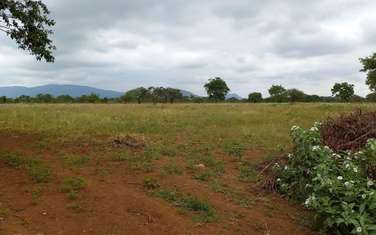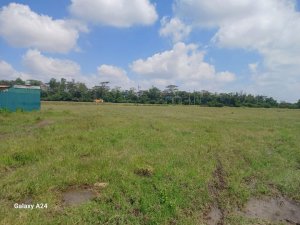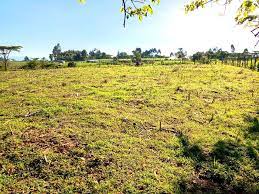Investing in Prime Land in Kenya: A Comprehensive Guide in 2024

 Introduction to Prime Land
Introduction to Prime Land
Prime land refers to a piece of real estate that is exceptionally desirable due to its location, potential for development, and other intrinsic values that make it superior compared to other plots. Understanding what constitutes prime land, particularly in the Kenya, is essential for investors, developers, and anyone interested in real estate.
Characteristics of Prime Land
Prime land is distinguished by several key characteristics that collectively enhance its value and desirability. These characteristics include:
Strategic Location
Location is perhaps the most critical factor in determining whether land is considered prime. In Kenya, prime land is often situated in areas with excellent infrastructure, proximity to urban centers, and easy access to major highways and transportation networks. For instance, land in Nairobi’s Central Business District (CBD), Westlands, Kilimani, and Karen is often categorized as prime due to its central location and accessibility.
Development Potential
The potential for development is another crucial aspect. Prime land should have a high potential for both residential and commercial development. This means that the land is suitable for constructing high-end residential properties, office complexes, shopping malls, or other significant developments. The presence of nearby amenities like schools, hospitals, and shopping centers further enhances this potential.
High Demand
Prime land is usually in high demand, which drives up its value. This demand can be driven by various factors, including economic growth, urbanization, and population growth. In Kenya, the rapid expansion of cities and the increasing need for housing and commercial spaces contribute to the high demand for prime land.
Favorable Zoning and Regulations
Land that falls under favorable zoning laws and regulations is more likely to be considered prime. In Kenya, this means the land must adhere to local planning regulations and be free from legal disputes. Land that is zoned for residential or commercial use and has the necessary permits for development is highly valued.
Scenic Views and Natural Beauty
In some cases, the aesthetic appeal of the land also plays a role. Prime land often boasts scenic views, natural beauty, and a pleasant environment. In Kenya, coastal properties, land near national parks, and plots with stunning views of mountains or lakes are often categorized as prime due to their unique natural attributes.
Examples of Prime Land in Kenya
To better understand what constitutes prime land in Kenya, let’s look at some notable examples:
Nairobi
Nairobi, the capital city, is home to several areas considered prime. These include the CBD, Westlands, Kilimani, Karen, and Lavington. These locations are characterized by their strategic positions, developed infrastructure, and high demand for both residential and commercial properties.
Mombasa
Mombasa, Kenya’s coastal city, has prime land along its beaches and in areas like Nyali, Mombasa Island, and Diani. The scenic views, proximity to the ocean, and tourist attractions make these areas highly desirable for both residential and commercial developments.
Nakuru
Nakuru, known for Lake Nakuru National Park, also has prime land, particularly in areas close to the lake and park. The natural beauty and growing urban development in Nakuru contribute to the land’s high value.
Kisumu
In Kisumu, prime land can be found near Lake Victoria and in the city center. The growing economic activities in Kisumu and its strategic location along the lake make it an attractive option for real estate investment.
Investing in Prime Land
Research and Market Analysis
Thorough research and market analysis are fundamental to making a sound investment in prime land. Understanding market trends, historical data, and future projections can provide valuable insights into the potential growth and appreciation of land values. In Kenya, this means analyzing the growth patterns of cities like Nairobi, Mombasa, Nakuru, and Kisumu.
For instance, Nairobi’s suburbs such as Karen, Runda, and Westlands have shown consistent appreciation due to their strategic locations and high demand. Similarly, coastal areas in Mombasa and tourist-friendly zones in Naivasha and Nanyuki offer significant potential due to their natural appeal and infrastructural developments.
Legal Considerations
Legal due diligence is a critical aspect of investing in prime land. Ensuring that the land has a clear title deed and is free from legal disputes is paramount. In Kenya, the process of verifying land ownership can be complex due to historical issues with land registration. Engaging a reputable lawyer to conduct a thorough check on the land’s legal status can prevent future disputes and financial losses.
Understanding zoning laws and local regulations is also crucial. Different areas may have specific restrictions or requirements for development. For example, land zoned for agricultural use may have different regulations compared to land designated for commercial or residential development. Ensuring compliance with these regulations is essential for smooth project execution.
Infrastructure and Accessibility
The value of prime land is significantly influenced by the quality of infrastructure and accessibility. Proximity to major highways, public transportation, airports, and essential services like hospitals, schools, and shopping centers can greatly enhance the desirability of a property.
In Kenya, ongoing and planned infrastructure projects such as the Nairobi Expressway, the expansion of the Jomo Kenyatta International Airport, and the development of the Standard Gauge Railway (SGR) have a substantial impact on real estate values. Land near these infrastructural developments often sees higher demand and quicker appreciation.
Environmental Factors
Environmental factors play a crucial role in determining the suitability and long-term value of prime land. This includes the quality of soil, risk of flooding, and susceptibility to natural disasters. In Kenya, areas with favorable environmental conditions, such as fertile soil in agricultural zones or stable terrain for construction, are highly prized.
For instance, agricultural land in regions like Kericho and Eldoret is valued for its fertility, making it ideal for farming investments. Conversely, areas prone to flooding or landslides may require additional investment in mitigation measures, which can affect overall profitability.
Long-term Vision
Having a long-term vision is essential when investing in prime land. Whether the goal is to develop residential properties, commercial complexes, or mixed-use developments, understanding the long-term potential of the land is crucial. This involves considering future urban expansion, population growth, and economic development trends.
In Kenya, cities like Nairobi and Mombasa are projected to continue growing rapidly, driving demand for both residential and commercial properties. Investors with a long-term perspective can capitalize on this growth by strategically acquiring and developing land in these expanding urban areas.
Challenges of Investing in Prime Land
While the benefits of investing in prime land are significant, it is not without challenges. Understanding and mitigating these challenges can help ensure a successful investment.
High Initial Costs
Prime land is inherently expensive, requiring substantial upfront investment. This can be a barrier for many investors, particularly those without access to significant capital. Additionally, the costs associated with developing prime land, including construction, permits, and infrastructure improvements, can be considerable.
Regulatory Hurdles
Navigating the regulatory environment in Kenya can be challenging. This includes obtaining the necessary permits and approvals, adhering to zoning regulations, and ensuring compliance with environmental standards. The bureaucratic processes can be time-consuming and complex, requiring patience and persistence.
Market Fluctuations
Real estate markets are subject to fluctuations influenced by economic conditions, political stability, and other external factors. In Kenya, changes in government policies, economic downturns, or social unrest can impact property values. Investors must be prepared for these fluctuations and have strategies in place to manage potential risks.
Competition
The competition for prime land is fierce, with many investors vying for limited available plots. This high demand can drive up prices, making it more challenging to secure desirable properties. Engaging in thorough market research and building strong networks within the real estate community can help navigate this competitive landscape.
 The Future of Prime Land in Kenya
The Future of Prime Land in Kenya
The future of prime land in Kenya is promising, driven by continued economic growth, urbanization, and infrastructural development. Areas like Nairobi, Mombasa, Nakuru, and Kisumu will continue to see high demand for prime land as the country develops.
Urbanization and Infrastructure
As Kenya continues to urbanize, the demand for prime land in urban centers will increase. Infrastructure projects such as the expansion of road networks, development of public transport systems, and construction of commercial hubs will further enhance the value of prime land.
Tourism and Hospitality
Kenya’s tourism and hospitality sectors also play a significant role in the demand for prime land. Coastal areas, national parks, and regions with scenic beauty will see continued interest from investors looking to develop resorts, hotels, and other tourist facilities.
Technology and Innovation
The growth of technology and innovation hubs in Kenya, particularly in Nairobi, will drive demand for prime land for commercial and residential developments. Areas near tech hubs and business districts will be highly sought after.
Challenges of Investing in Prime Land
High Initial Costs
One of the most significant barriers to investing in prime land is the high initial cost. Prime land, by its very nature, is located in highly desirable areas, which drives up its price. In urban centers like Nairobi, Mombasa, and other major cities, the cost per acre can be prohibitively expensive. This high cost can be a major hurdle for individual investors and even for smaller development firms.
The expenses don’t stop at the purchase price. There are additional costs associated with taxes, legal fees, and sometimes, costs related to infrastructure development such as connecting to municipal utilities. Investors must be prepared for these substantial upfront expenditures and should have a robust financial plan in place.
Regulatory Hurdles
Navigating the regulatory environment in Kenya can be challenging and time-consuming. The process of acquiring land often involves dealing with multiple government agencies, each with its own set of requirements. Ensuring that the land has a clear title deed, verifying its legal status, and confirming that it complies with local zoning regulations are critical steps that can be fraught with complexity.
In Kenya, the regulatory framework for land ownership and use can be particularly intricate. Investors must be aware of the National Land Commission’s role and the Ministry of Lands’ policies, which govern land transactions. Any oversight or failure to comply with these regulations can result in legal disputes, project delays, and even the potential loss of the investment.
Market Fluctuations
The real estate market is inherently volatile, and prime land is no exception. Market fluctuations can be driven by a variety of factors, including economic conditions, political stability, interest rates, and changes in government policies. In Kenya, events such as elections, changes in government administration, or shifts in economic policy can significantly impact property values.
Investors must be prepared for these fluctuations and should have contingency plans in place. This might include diversifying their investment portfolio, securing financing options that can withstand market downturns, or adopting a long-term investment strategy to ride out short-term market volatility.
Competition
Prime land is highly sought after, leading to intense competition among investors. This competition can drive up prices and make it difficult to secure desirable properties. In high-demand areas, bidding wars can occur, further inflating the cost of acquisition.
Additionally, competition is not only limited to local investors. International investors also recognize the value of prime land in Kenya, particularly in major cities and tourist destinations. This international interest can make the market even more competitive, requiring local investors to be more strategic and timely in their investment decisions.
Infrastructure and Development Challenges
While prime land often has excellent development potential, realizing this potential can present its own set of challenges. In some areas, the existing infrastructure may not be sufficient to support large-scale developments. Investors might need to invest in significant infrastructure upgrades, such as roads, sewage systems, and utility connections, which can be both costly and time-consuming.
In rural or less developed areas, the lack of basic infrastructure can be a significant impediment. Investors must carefully assess the current state of infrastructure and factor in the costs and logistics of necessary improvements. Partnering with local authorities and infrastructure providers can help mitigate some of these challenges, but it requires careful planning and negotiation.
Environmental and Social Considerations
Investing in prime land also involves navigating environmental and social considerations. For instance, land that is close to natural reserves or within sensitive ecosystems might face restrictions on development to preserve environmental integrity. Investors must ensure that their projects comply with environmental regulations and sustainability practices.
Social considerations are equally important. In Kenya, land ownership can be a sensitive issue, often intertwined with community rights and historical land use patterns. Investors must engage with local communities and stakeholders to ensure that their projects are socially responsible and that they do not inadvertently cause displacement or other negative social impacts. Building positive relationships with local communities can also enhance the success and acceptance of development projects.
Legal Disputes and Land Grabbing
Legal disputes and land grabbing are significant risks in Kenya’s real estate sector. Land grabbing, where individuals or entities illegally acquire land through corrupt practices or exploitation of legal loopholes, can lead to prolonged legal battles and potential loss of property. Ensuring clear and undisputed ownership through thorough due diligence is crucial.
Investors should engage experienced legal professionals to verify land titles, investigate any claims or disputes, and ensure compliance with all legal requirements. Taking these steps can help safeguard against the risk of legal disputes and protect the investment.
Future Uncertainty
The future is always uncertain, and unforeseen events can impact the value and usability of prime land. Natural disasters, changes in political climate, or economic downturns can all affect real estate investments. Investors must be aware of these risks and should consider purchasing insurance, diversifying their investments, and staying informed about local and global events that could impact their properties.

Prime land
The Future of Prime Land in Kenya
Urbanization and Infrastructure Development
Urbanization is one of the most significant trends impacting the future of prime land in Kenya. The country’s urban population is growing rapidly, with more people moving to cities in search of better job opportunities and living standards. This urban migration drives the need for more residential, commercial, and industrial developments in urban areas.
Nairobi, Mombasa, Kisumu, and Nakuru are prime examples of cities experiencing this urbanization surge. In response, the government and private sector are investing heavily in infrastructure development, including expanding road networks, improving public transportation systems, and developing utility services. Projects such as the Nairobi Expressway, the expansion of the Mombasa Port, and the Standard Gauge Railway (SGR) are transforming accessibility and connectivity, making areas with developed infrastructure highly desirable for real estate investments.
Economic Growth and Diversification
Kenya’s economy is one of the most robust in Africa, with a diverse range of sectors contributing to its growth. Agriculture, manufacturing, tourism, and technology are key pillars of the economy, each influencing the real estate market differently. Economic growth leads to increased disposable income, higher demand for quality housing, and more business opportunities, all of which contribute to the demand for prime land.
As Kenya continues to diversify its economy, the demand for commercial and industrial real estate is expected to grow. Areas near business districts, industrial parks, and technology hubs will likely see increased interest from investors and developers looking to capitalize on the country’s economic prospects.
Technological Advancements
Technology is playing an increasingly important role in shaping the real estate market in Kenya. The rise of smart cities and technology parks is transforming how urban spaces are designed and utilized. Nairobi’s Konza Technopolis, for instance, is a flagship project aimed at creating a sustainable, smart city that attracts technology companies, startups, and investors.
Technological advancements in construction and real estate management are also improving the quality and efficiency of developments. The use of green building technologies, energy-efficient designs, and smart home systems is becoming more prevalent, especially in prime areas. These innovations not only enhance the living experience but also increase the value of properties, making prime land even more attractive.
Tourism and Hospitality
Kenya’s tourism industry is a significant driver of demand for prime land, especially in coastal regions and near national parks. The country’s natural beauty, diverse wildlife, and cultural heritage attract millions of tourists annually. This tourism boom fuels the need for high-end resorts, hotels, and vacation homes.
Coastal areas like Diani, Malindi, and Watamu are particularly appealing for investors looking to develop luxury hospitality projects. Similarly, areas near renowned national parks such as Maasai Mara and Amboseli offer opportunities for eco-friendly lodges and resorts. As the tourism sector continues to grow, the value of prime land in these regions is expected to rise.
Regulatory and Policy Reforms
The Kenyan government has been actively working on regulatory and policy reforms to improve the real estate sector’s transparency and efficiency. Initiatives aimed at streamlining land registration processes, enforcing zoning regulations, and promoting sustainable development are crucial for the future of prime land.
Reforms in land ownership laws, such as digitizing land records and simplifying the transfer process, are expected to reduce disputes and increase investor confidence. Additionally, policies that encourage public-private partnerships in infrastructure development can significantly enhance the attractiveness of prime land by ensuring the timely completion of essential projects.
Environmental Sustainability
Sustainability is becoming a key consideration in real estate development, with a growing emphasis on eco-friendly practices and green building standards. Prime land that incorporates sustainable features such as energy-efficient buildings, water conservation systems, and waste management solutions is likely to see increased demand.
Developers are increasingly recognizing the importance of environmental stewardship in maintaining the long-term value of their properties. As awareness of climate change and environmental impact grows, properties that prioritize sustainability will stand out in the market, attracting environmentally conscious buyers and investors.
Sociopolitical Stability
Sociopolitical stability is a critical factor that influences real estate investment decisions. Kenya’s relatively stable political environment compared to its neighbors makes it an attractive destination for local and international investors. The government’s commitment to maintaining stability and promoting economic growth provides a conducive environment for real estate development.
However, it is essential to remain vigilant about potential political changes and their impact on the real estate market. Continuous engagement with policymakers and staying informed about regulatory updates can help investors navigate any uncertainties and capitalize on emerging opportunities.
Demand for Mixed-Use Developments
The trend towards mixed-use developments is gaining momentum in Kenya, particularly in urban areas. Mixed-use projects that combine residential, commercial, and recreational spaces offer convenience and create vibrant communities. These developments maximize land use efficiency and cater to the evolving needs of urban dwellers.
Prime land in strategic locations is ideal for such mixed-use projects. Areas with good connectivity, access to amenities, and a growing population are perfect for these developments, which can significantly enhance the value and appeal of the land.
Rise of Gated Communities
Gated communities are becoming increasingly popular in Kenya, offering security, exclusivity, and a sense of community. These developments are often situated on prime land, providing residents with high-quality living environments and various amenities such as parks, schools, shopping centers, and recreational facilities.
The demand for gated communities is driven by factors such as urbanization, rising middle-class incomes, and the desire for a safe and organized living environment. Prime land within or near urban centers is highly sought after for the development of these communities, which promise a high return on investment.
Future Investment Opportunities
The future of prime land in Kenya is ripe with investment opportunities. Areas currently on the cusp of development, such as Konza Technopolis, Tatu City, and various satellite towns around Nairobi, offer promising prospects. These regions are expected to benefit from infrastructural improvements, economic growth, and increased urbanization.
Investors should also look beyond traditional urban centers to emerging markets within Kenya. Counties like Machakos, Kiambu, and Kajiado are experiencing rapid growth and offer attractive opportunities for acquiring prime land at relatively lower prices compared to established urban areas.
Conclusion
Prime land represents the pinnacle of real estate investment, offering high potential for development and significant returns. In Kenya, the characteristics that define prime land include strategic location, development potential, high demand, favorable zoning, and natural beauty. Investing in prime land requires careful research, legal due diligence, and a long-term vision. Despite the challenges, the future of prime land in Kenya is bright, driven by urbanization, infrastructural development, and economic growth. Whether you are an investor, developer, or potential homeowner, understanding the dynamics of prime land can help you make informed decisions and capitalize on the opportunities in Kenya’s real estate market.



